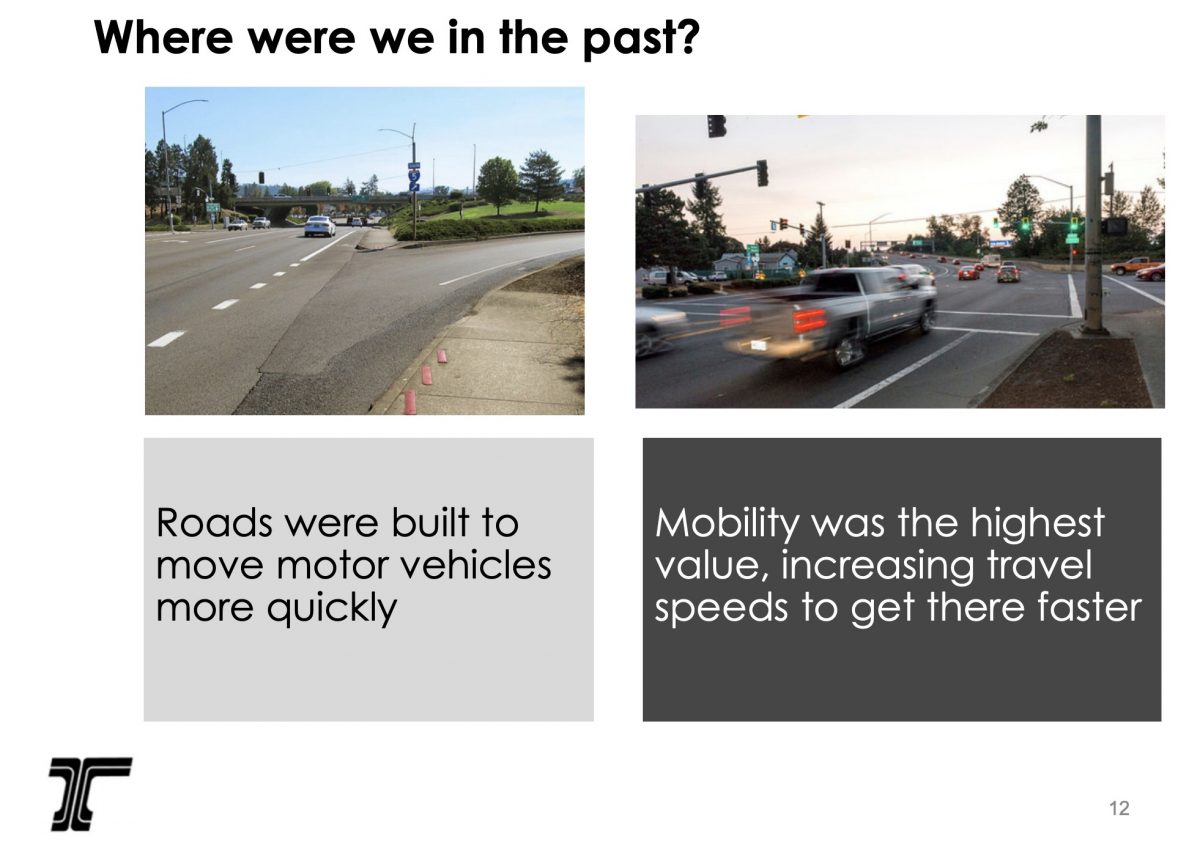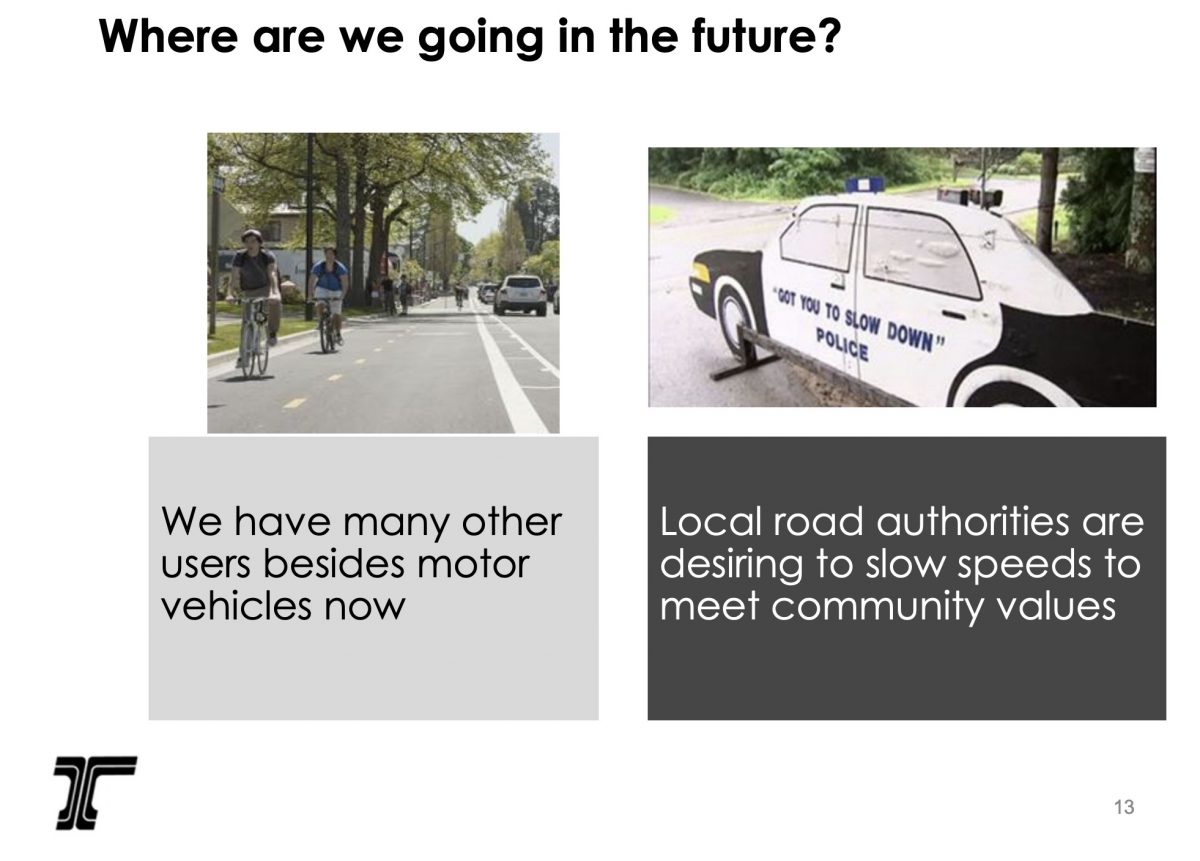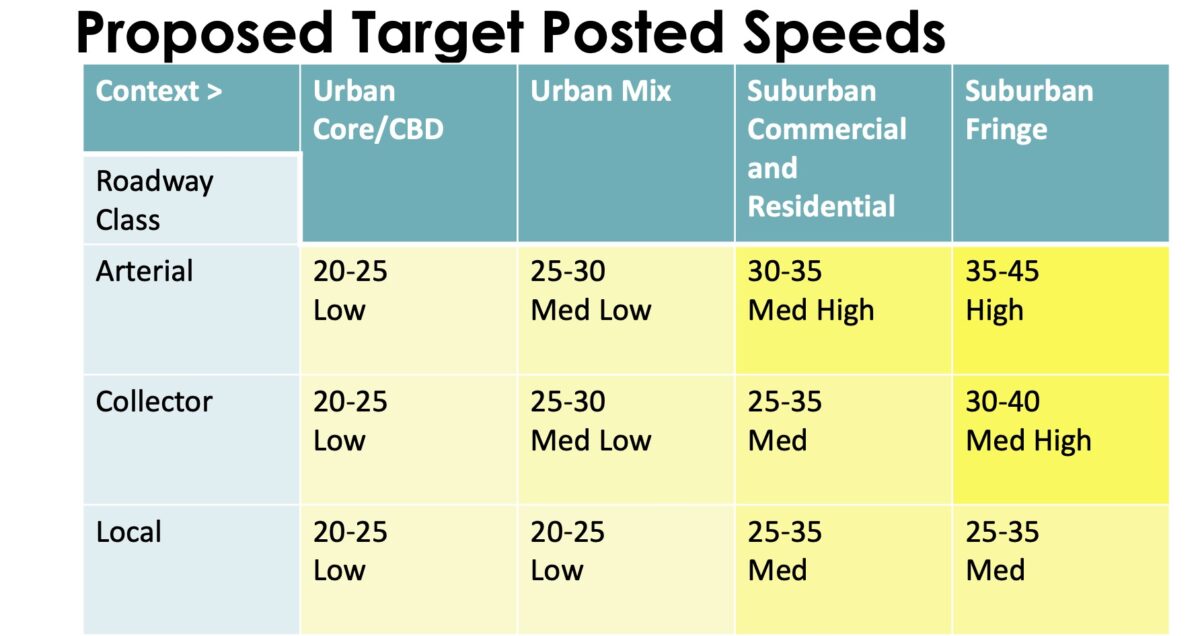

In a welcome bit of progress at the Oregon Department of Transportation, the agency is poised to update their approach to setting speed limits.
ODOT is currently seeking public feedback on a proposed rule change that would clarify how they decide to set speeds on roads throughout the state.
According to just-published proposed revisions (PDF) to two Oregon Administrative Rules (OARs), ODOT will base speed designations on land-use context and will consider a new metric of 50th percentile speeds. The new rules would give ODOT’s Speed Zone Review Panel much more leeway to designate lower speeds.
Like many state DOTs, ODOT has typically relied on the “85th percentile” rule to designate speeds. That rule defines the optimum speed as that which 85% of drivers will drive at or below in “free flow” conditions. That approach has come under fire for prioritizing drivers (who will always push the upper limits of safety) at the expense of safety of themselves and everyone else on the road.
Advertisement
The City of Portland doesn’t use the 85th percentile method and has long sought changes at ODOT to a more safety-oriented and flexible approach. Even ODOT Director Kris Strickler has hinted recently that it’s time to change. “Maybe the historic practice that we’ve been using [to set speeds] doesn’t necessarily fit the context of what our current transportation system is,” Strickler said during legislative testimony back in March.
Now it’s finally happening.

The new rules would add four new functional street classifications: “urban core”, “urban mix”, “suburban commercial or residential”, and “suburban fringe”. Each classification would come with a suggested speed for collector, local, and arterial roadways. The concept of a 50th percentile speed would also be added into the analysis mix. This is significant because engineers could take into account the average speed of all drivers — instead of just the speed 85% of them are going.
Giving ODOT engineers more flexibility to set speeds and having rules that take different land uses into account is a huge deal!
If you want to share comments of support or concern with ODOT about these proposed changes, you can email SpeedSettingComments@odot.state.or.us. There’s also a public hearing on January 17th in Salem if you’re so inclined. Learn more about the hearing and the new rules on ODOT’s website.
— Jonathan Maus: (503) 706-8804, @jonathan_maus on Twitter and jonathan@bikeportland.org
— Get our headlines delivered to your inbox.
— Support this independent community media outlet with a one-time contribution or monthly subscription.

